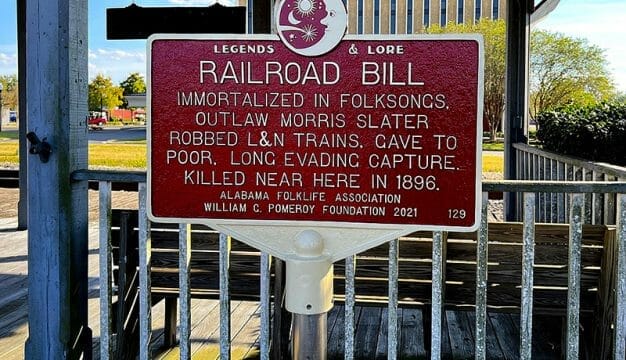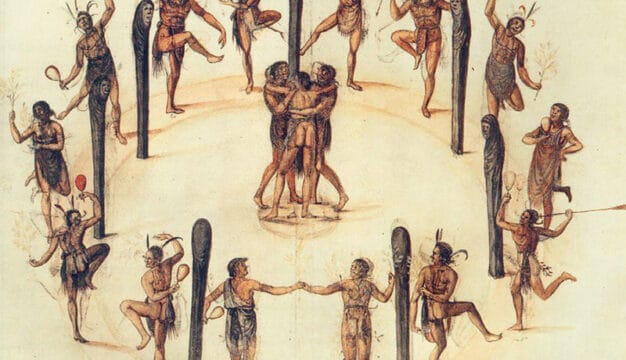Charles Henderson (1915-19)
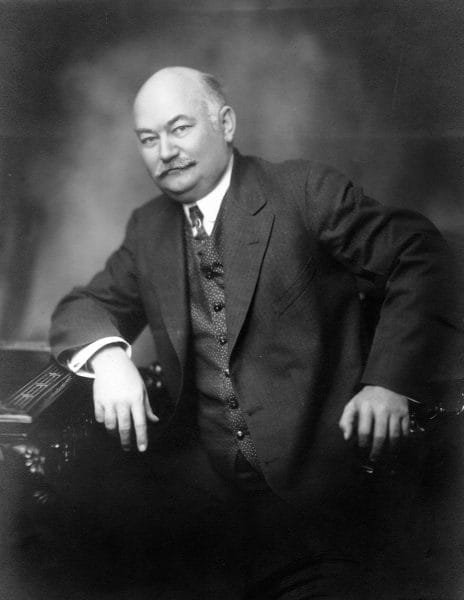 Charles Henderson
Known as Alabama’s “business governor” for his many commercial interests and for maneuvering the state out of debt, Charles Henderson (1860-1937) was also a successful local politician, education supporter, and philanthropist whose public contributions to the city of Troy and Pike County created schools and a hospital for children.
Charles Henderson
Known as Alabama’s “business governor” for his many commercial interests and for maneuvering the state out of debt, Charles Henderson (1860-1937) was also a successful local politician, education supporter, and philanthropist whose public contributions to the city of Troy and Pike County created schools and a hospital for children.
Henderson was born on April 26, 1860, at the family farm at Gainer’s Store, an area now known as Henderson, 12 miles south of Troy. He was one of six children of Jeremiah Augustus Henderson and Mildred Elizabeth Hill Henderson. Jeremiah Henderson represented Pike County at the Alabama Secession Convention and served in the Fifty-Seventh Alabama Regiment during the Civil War. He then moved to Troy and established himself as a merchant, becoming one of the wealthiest men in southeast Alabama.
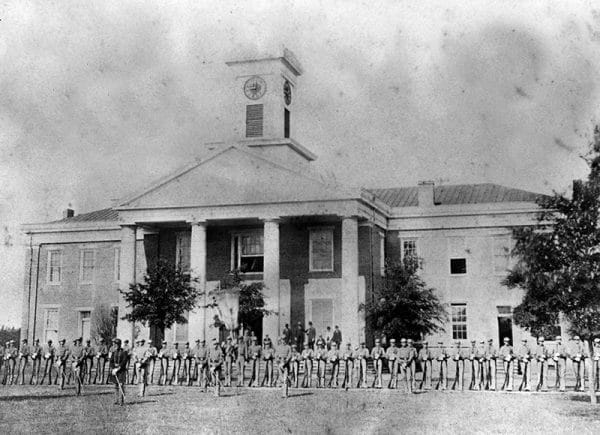 Howard College, 1858
Charles was educated in the private schools of Pike County, where he was greatly influenced by a teacher who had been a Baptist missionary. Henderson enrolled at the Baptist-affiliated Howard College (now Samford University), then located at Marion, but was forced to leave after two years upon his father’s death in 1877. He returned home to manage the family business. Because he was only 17, he had to seek an act of the state legislature to be permitted to run a business. With two of his brothers, he entered the mercantile business known as Henderson Brothers, which became a phenomenally successful concern that brought prosperity to the Henderson family and to the town of Troy.
Howard College, 1858
Charles was educated in the private schools of Pike County, where he was greatly influenced by a teacher who had been a Baptist missionary. Henderson enrolled at the Baptist-affiliated Howard College (now Samford University), then located at Marion, but was forced to leave after two years upon his father’s death in 1877. He returned home to manage the family business. Because he was only 17, he had to seek an act of the state legislature to be permitted to run a business. With two of his brothers, he entered the mercantile business known as Henderson Brothers, which became a phenomenally successful concern that brought prosperity to the Henderson family and to the town of Troy.
Henderson and his brothers sold this business to an uncle in 1890, and the future governor established the Charles Henderson Wholesale Grocery Company. In addition to that venture, he was majority stockholder and president of both the Pea River Power Company and the Standard Telephone and Telegraph Company. Henderson also served on the board of directors and was a stockholder in the Farmers and Merchants Bank of Troy, the Standard Chemical and Oil Company, the Troy Compress Company, and the Alabama Warehouse Company.
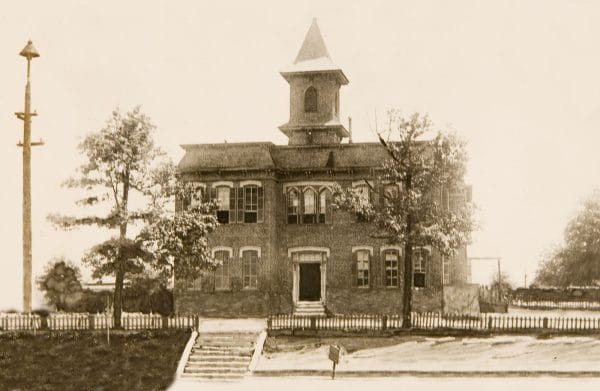 State Normal School at Troy
Henderson entered local politics when a group of Troy citizens urged him to run for mayor of that city. He was elected in 1886 and served three terms before withdrawing from public life to devote himself to his flourishing business empire. After a brief respite, he agreed to run again in 1901 and after winning, served a total of 12 years as mayor. During his tenure, the town established a public school system, and he helped to establish and serve as a trustee of the Troy State Normal College, now Troy University. On November 7, 1887, Henderson married Laura Montgomery of Raleigh, North Carolina, who was a teacher in Troy’s new public school system. The couple had no children, and Laura shared her husband’s devotion to numerous civic and cultural affairs.
State Normal School at Troy
Henderson entered local politics when a group of Troy citizens urged him to run for mayor of that city. He was elected in 1886 and served three terms before withdrawing from public life to devote himself to his flourishing business empire. After a brief respite, he agreed to run again in 1901 and after winning, served a total of 12 years as mayor. During his tenure, the town established a public school system, and he helped to establish and serve as a trustee of the Troy State Normal College, now Troy University. On November 7, 1887, Henderson married Laura Montgomery of Raleigh, North Carolina, who was a teacher in Troy’s new public school system. The couple had no children, and Laura shared her husband’s devotion to numerous civic and cultural affairs.
Henderson’s career took another direction in 1906, when he was elected to the Alabama Railroad Commission. He was appointed president of the commission and served two terms from 1907 to 1915. Using his membership on the commission as a stepping stone to higher office, Henderson ran for governor in 1914, defeating former governor Braxton Bragg Comer in a Democratic Party runoff. He easily defeated the Republican, Progressive, and Socialist Party candidates in the November general election.
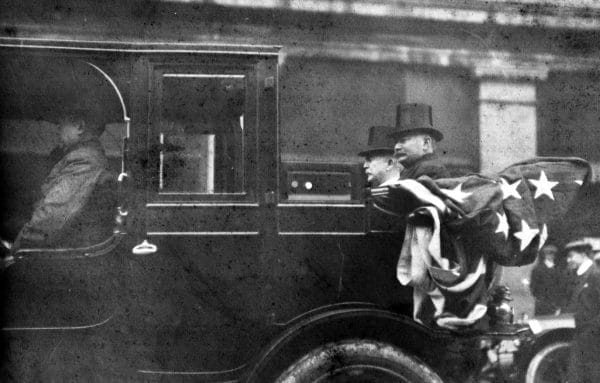 Charles Henderson Inauguration Parade
When Henderson took office in January 1915, the state was deeply in debt (nearly $1 million by one account), with dim prospects for balancing the budget. With the outbreak of war in Europe in 1914, the price of cotton plummeted, and the economy of the state was devastated. Within two years, however, the economic picture brightened, and the state began to share in the nation’s wartime prosperity as federal monies flowed into the state for the Muscle Shoals munitions development and training camps. Wages for Alabama workers increased and neared the national average. Henderson paid off outstanding debts and placed the small surplus in the treasury. Having seen the result of basing the state’s economy on a single crop, Henderson devoted much of his remaining life to encouraging agricultural diversification. He himself was a significant landowner, having an estimated 3,000 acres in Pike County when he became governor.
Charles Henderson Inauguration Parade
When Henderson took office in January 1915, the state was deeply in debt (nearly $1 million by one account), with dim prospects for balancing the budget. With the outbreak of war in Europe in 1914, the price of cotton plummeted, and the economy of the state was devastated. Within two years, however, the economic picture brightened, and the state began to share in the nation’s wartime prosperity as federal monies flowed into the state for the Muscle Shoals munitions development and training camps. Wages for Alabama workers increased and neared the national average. Henderson paid off outstanding debts and placed the small surplus in the treasury. Having seen the result of basing the state’s economy on a single crop, Henderson devoted much of his remaining life to encouraging agricultural diversification. He himself was a significant landowner, having an estimated 3,000 acres in Pike County when he became governor.
Henderson also faced continued problems surrounding Prohibition. As an Episcopalian, he was less committed to total abstinence than the Baptists and Methodists who made up the bulk of the state’s population. He, like former governor Edward O’Neal, favored allowing local governments to determine their own rules, but the majority of the new legislature favored absolute statewide prohibition. Henderson vetoed the legislation, only to have his veto overridden. Thus, Alabama was a dry state before national prohibition was instituted, with Alabama’s approval and ratification, by the Eighteenth Amendment in 1919.
 Charles Henderson Airplane Flight
After the United States declared war on Germany in 1917, Congress passed conscription legislation. The process of drafting young men into the armed services revealed that a disproportionately large number of Alabamians were rejected because of poor health or for illiteracy. Henderson called on the legislature to provide additional funding for the state’s Department of Health and for public schools. The legislature permitted school districts to levy a property tax for local schools, and many lawmakers took advantage of this legislation to increase community funding for schools.
Charles Henderson Airplane Flight
After the United States declared war on Germany in 1917, Congress passed conscription legislation. The process of drafting young men into the armed services revealed that a disproportionately large number of Alabamians were rejected because of poor health or for illiteracy. Henderson called on the legislature to provide additional funding for the state’s Department of Health and for public schools. The legislature permitted school districts to levy a property tax for local schools, and many lawmakers took advantage of this legislation to increase community funding for schools.
Although Henderson was clearly a representative of the conservative wing of the Democratic Party, he encouraged progressive causes where he saw a need. He commissioned the Russell Sage Foundation to study the state’s governmental institutions. That report, issued late in 1918, declared that Alabama’s educational, public health, child services, and prison systems were woefully inadequate. It affixed blame for the substandard programs on the state’s inequitable tax system, a subject that has remained contentious up to the present. Henderson advocated reform, but subsequent governors Kilby and Graves acted on most of the issues raised by the Sage Foundation report.
Henderson also proposed reform of the court system, but when the legislature delivered only a part of his request, he vetoed their measure. He succeeded in passing a primary election law that established procedures for certifying candidates and for setting the dates for such elections. Henderson also worked to reform the health care and living conditions of state prisoners. He lobbied for support of the state’s highway commission, and Alabama was among the first states in the country to receive funds from the federal “good roads” bill backed by Alabama senator John H. Bankhead. Henderson’s administration was marked by a workable blend of conservative economy and mild, but important, progress.
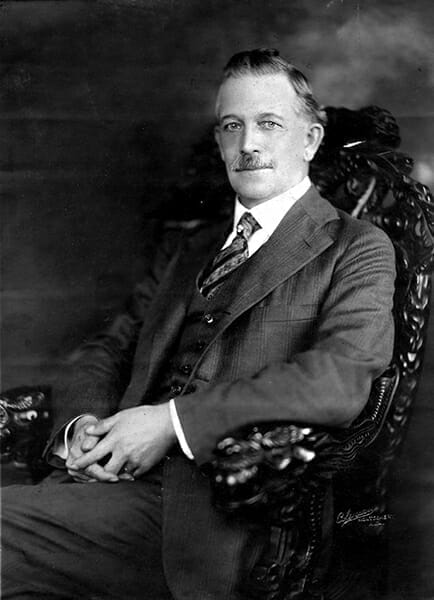 William W. Brandon
Following his term as governor, Henderson returned to Troy to manage his business affairs, but he continued in public service. Gov. William W. Brandon appointed him to the new Alabama State Docks Commission and made him a trustee of Auburn University. He received an honorary degree from the University of Alabama in 1923. In late 1936, Henderson contracted influenza and then suffered a mild stroke. His condition worsened, and he died in Troy on January 7, 1937. At the time of his death during the depths of the Great Depression, Henderson’s estate was estimated to be worth $3 million. He provided trusts for his wife and sister, but the remainder of his estate was placed into a trust for the public good. For 20 years the proceeds went to the construction of public school facilities in Troy, and later monies were used to support the Charles Henderson Memorial Hospital for Crippled Children. A number of his relatives attempted to break the will, but its validity was upheld by the Alabama Supreme Court in two separate cases. Through this notable donation and his steady tenure as governor, Henderson’s legacy survives. An armory in Troy was named for him posthumously, as was a World War II Liberty Ship, the USS Charles Henderson.
William W. Brandon
Following his term as governor, Henderson returned to Troy to manage his business affairs, but he continued in public service. Gov. William W. Brandon appointed him to the new Alabama State Docks Commission and made him a trustee of Auburn University. He received an honorary degree from the University of Alabama in 1923. In late 1936, Henderson contracted influenza and then suffered a mild stroke. His condition worsened, and he died in Troy on January 7, 1937. At the time of his death during the depths of the Great Depression, Henderson’s estate was estimated to be worth $3 million. He provided trusts for his wife and sister, but the remainder of his estate was placed into a trust for the public good. For 20 years the proceeds went to the construction of public school facilities in Troy, and later monies were used to support the Charles Henderson Memorial Hospital for Crippled Children. A number of his relatives attempted to break the will, but its validity was upheld by the Alabama Supreme Court in two separate cases. Through this notable donation and his steady tenure as governor, Henderson’s legacy survives. An armory in Troy was named for him posthumously, as was a World War II Liberty Ship, the USS Charles Henderson.
Note: This entry was adapted with permission from Alabama Governors: A Political History of the State, edited by Samuel L. Webb and Margaret Armbrester (Tuscaloosa: University of Alabama Press, 2001).
Further Reading
- Farmer, Margaret Pace. “Governor Charles Henderson.” Alabama Review 9 (October 1956): 243-50.
- Henderson, Charles. Folder. VF Miscellaneous Clippings (SG 6999). Alabama Department of Archives and History, Montgomery.
- Stewart, John Craig. The Governors of Alabama. Gretna, La.: Pelican Publishing, 1975.

